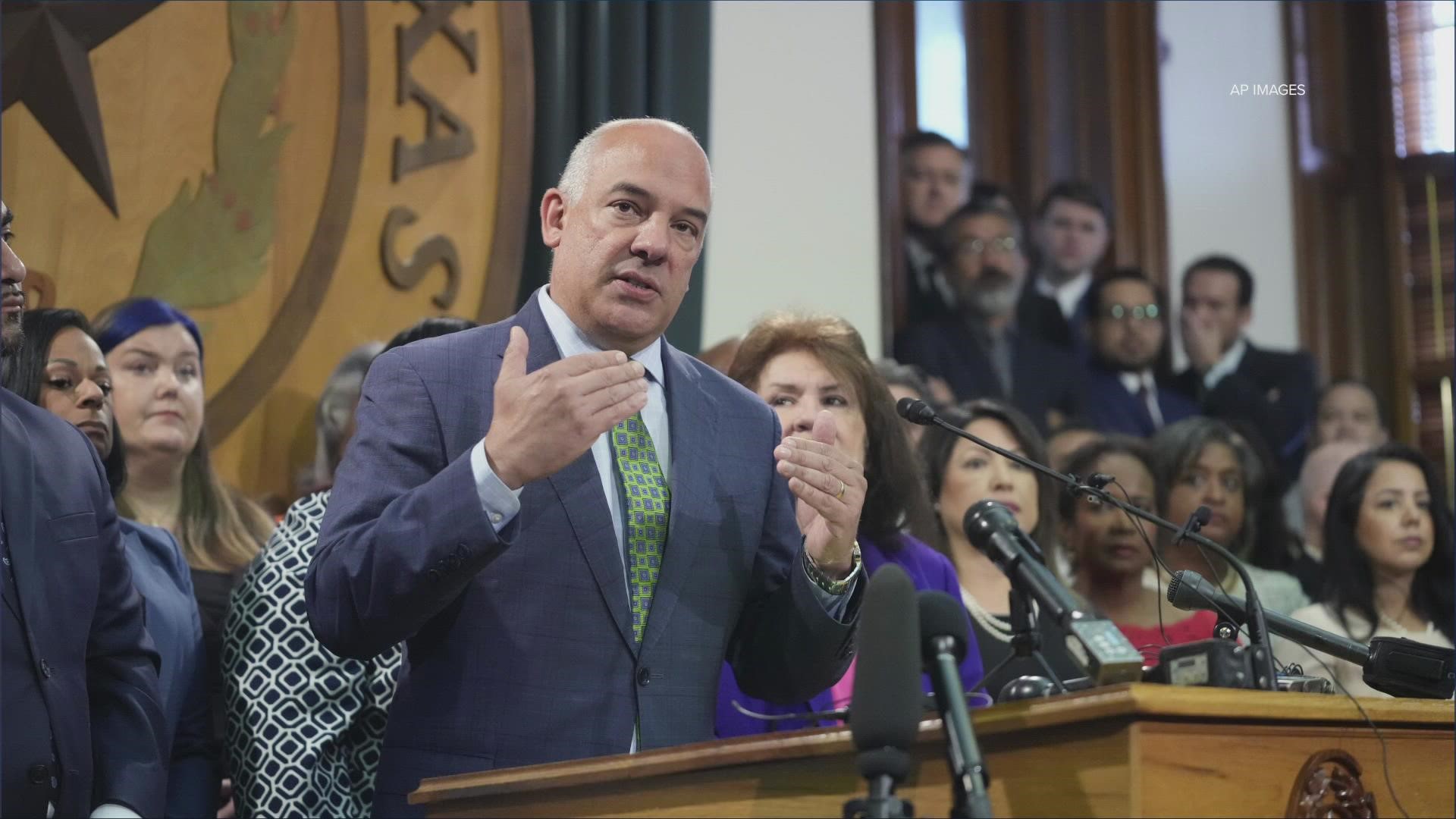DALLAS — An Arlington state representative on Wednesday filed four new bills in response to WFAA’s “Disabled in Danger” series, which chronicled lax oversight of group and host homes putting people with intellectual and developmental disabilities in harm’s way.
Rep. Chris Turner, D-Arlington, introduced House Bill 1007, known as “Joshua’s Act,” in memory of Joshua Moore, the 28-year-old man featured in a WFAA report after he was shot to death by his state-paid caregiver in a group home.
The bill would prohibit firearms in group homes, intermediate care facilities and state-supported living centers that care for individuals with intellectual and developmental disabilities. Currently, there is no law banning guns in such facilities.
Moore’s caretaker fatally shot him in the summer of 2021 after Moore attached him with a knife. The caretaker was cleared of criminal wrongdoing, but was sanctioned by state health officials for leaving the knife where Moore could get it, and for shooting Moore. The company the caretaker worked for said it did not know there was a gun in the house.
“Let the tragedy of what cost Joshua Moore his life pave the way so this will never happen to another mentally challenged intellectually disabled individual," said Don Moore, Joshua’s father. “How many more must perish before we act to protect those who are most vulnerable in our society?”
Turner also filed three other bills in response to previous “Disabled in Danger” investigations.
In 2021, WFAA reported on the death of Raul Olguin, a 24-year-old man with severe autism who was living in a group home when he became malnourished and later died in 2019. His caretaker was allowed to keep caring for other clients while she was under investigation. HB 1008 would prevent this, essentially suspending caretakers until their cases are adjudicated.
In that same case, WFAA found that Olguin’s caretaker should never have been granted a license to care for the disabled because of an Arkansas federal felony conviction – which a Texas state background check missed. Turner’s HB 1009 would require a more thorough federal background check for caregivers in group homes, intermediate care facilities, and state-supported living facilities so that people who have committed crimes in other states do not slip through the cracks.
HB 1010 prevents caregivers from taking life insurance policies out on non-relatives who are under their care. That follows another WFAA investigation into the 2018 death of Leroy Anderson Jr., a 49-year-old Dallas man with the intellectual capacity of a toddler who died of what his family called neglect in a group home, but not before his caretaker had himself added as the beneficiary on Anderson’s life insurance.
“When Texans entrust the care of loved ones to a group home, they should have confidence that they will be safe, at a bare minimum,” Rep. Turner said.
“It is clear that the legislature must strengthen protections for vulnerable Texans in these facilities so that we do not see a repeat of Joshua Moore's needless death or the other unacceptable practices we have learned about,” he said. “We have a responsibly to ensure Texas is providing these individuals with the best quality of life possible in a safe environment, and that is what this legislation is intended to do.”
WFAA’s series of investigations on this topic began in 2018 with the story of Paul Taylor, an intellectually disabled man who was stabbed nearly 100 times with a screwdriver by a roommate in a host home who had a violent past and was not sufficiently supervised. WFAA learned that medical privacy laws prevented health care officials from sharing the assailant’s violent history with Taylor’s caregivers or mother. The caregiver in that case also was allowed to keep caring for other disabled clients while a state neglect investigation was pending.
More Texas headlines:

